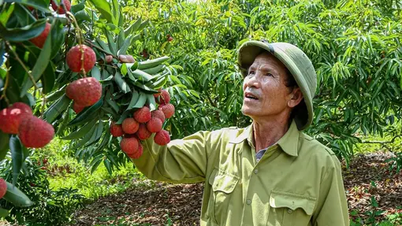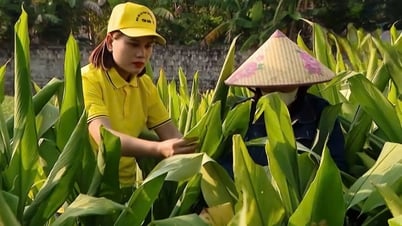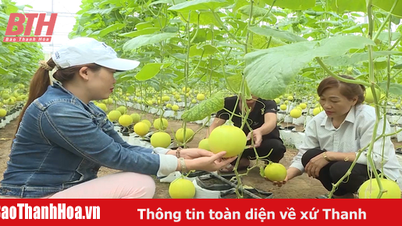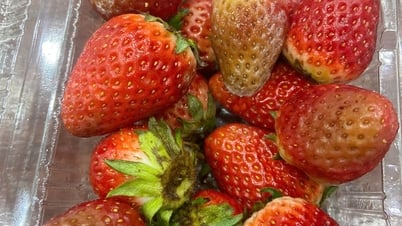The country currently has more than 14,000 OCOP products from nearly 8,000 entities. OCOP products are gradually approaching the market, arousing the potential and advantages of regions to develop the rural economy ; some of which are exported to international markets. Most recently, guava tea, male papaya flowers soaked in honey, dried bananas, green-heart black bean tea bags, lemon syrup and kumquat syrup are OCOP products of Tuyen Quang province that are officially exported to the UK market. These are all products of cooperatives in the province and RYB Joint Stock Company is responsible for packaging according to export standards and transporting to the UK market. Previously, OCOP products such as coffee, bird's nest, bananas... of some localities have also been "exported" to markets in Europe, China, Singapore, Korea...
However, in general, the quantity and output of exported OCOP products are still very small nationwide, mainly consumed locally or in neighboring areas. The reason is that most of the production scale of OCOP products is small and fragmented, while to export, first of all, there must be a concentrated growing area, ensuring a stable and even supply. In fact, there are OCOP products that, in addition to the development orientation to reach 5-star standards, also aim to produce according to safety and organic standards, but because the products are still seasonal, it is difficult to ensure a large volume of goods for sale all year round, affecting compliance with the conditions of export orders.
On the other hand, Vietnam's agricultural export markets in recent years have frequently and continuously changed and added regulations on standards and quality of imported goods, requiring standardization from raw material areas, production processes to harvesting and processing to implement clear and transparent traceability. Meanwhile, most OCOP product manufacturing facilities do not have enough production capacity, financial potential, and commercial knowledge to meet these requirements.
Therefore, to open the door to export for OCOP products, it is necessary to improve the production and trade capacity of OCOP entities: Forming concentrated production areas to solve the problem of output; having credit policies to support preferential loans specifically for expanding the development of OCOP products; organizing training courses, disseminating regulations on standards, product quality, animal and plant quarantine, etc. of potential export markets; supporting OCOP entities to participate in trade fairs and commodity exhibitions to experience, learn, and study the practices of other units, localities, and countries; at the same time, receiving information and market requirements to be flexible and creative in production, processing as well as designing packaging and product models suitable for each customer segment and the specific needs of each market.


![[Photo] Readers line up to visit the photo exhibition and receive a special publication commemorating the 135th birthday of President Ho Chi Minh at Nhan Dan Newspaper](https://vphoto.vietnam.vn/thumb/1200x675/vietnam/resource/IMAGE/2025/5/17/85b3197fc6bd43e6a9ee4db15101005b)
![[Photo] More than 17,000 candidates participate in the 2025 SPT Competency Assessment Test of Hanoi National University of Education](https://vphoto.vietnam.vn/thumb/1200x675/vietnam/resource/IMAGE/2025/5/17/e538d9a1636c407cbb211b314e6303fd)



![[Photo] Prime Minister Pham Minh Chinh chairs meeting on science and technology development](https://vphoto.vietnam.vn/thumb/1200x675/vietnam/resource/IMAGE/2025/5/17/ae80dd74c384439789b12013c738a045)
































![[Photo] Nearly 3,000 students moved by stories about soldiers](https://vphoto.vietnam.vn/thumb/1200x675/vietnam/resource/IMAGE/2025/5/17/21da57c8241e42438b423eaa37215e0e)
























































Comment (0)